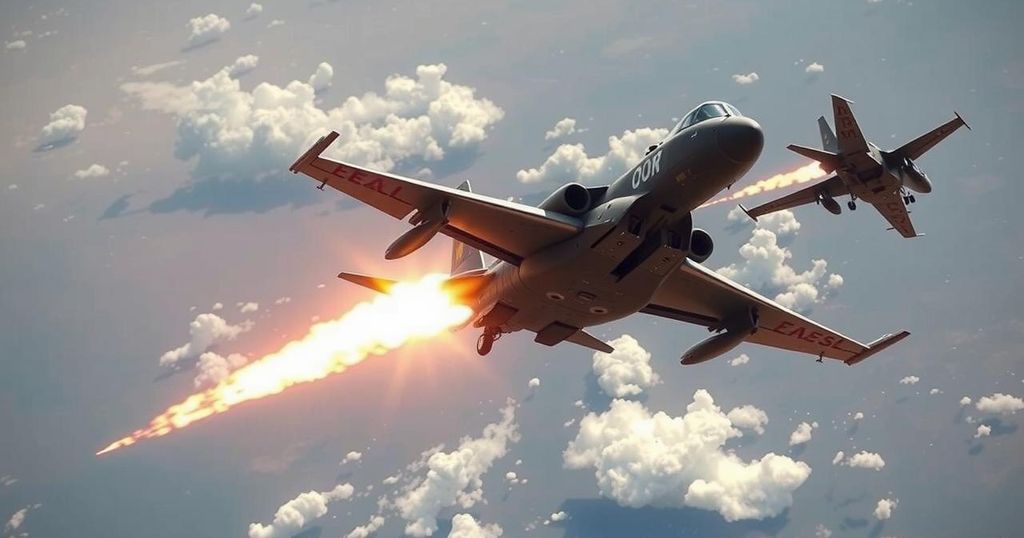The U.S. conducted an air strike in southern Somalia on December 31, killing ten Al-Shabaab militants, at the request of the Somali government. The strike, which took place 35 kilometers from Kismayo, reportedly did not harm any civilians. This operation comes amid a broader offensive against jihadist groups in Somalia, highlighting ongoing U.S. support for the Somali government against such threats.
On December 31, the United States conducted an air strike in southern Somalia, resulting in the deaths of ten members of the Al-Shabaab terrorist organization, as reported by the U.S. military authorities. This operation, noted to have occurred approximately 35 kilometers from Kismayo, was undertaken at the request of the Somali government. Initial assessments suggested that no civilians were harmed in the strike, which underscores the ongoing efforts to combat jihadist threats in the region. The action by U.S. forces comes in the wake of increased violence spearheaded by the Al-Shabaab group and follows a recent attack by the Islamic State to the north, which was successfully repelled by Somali government troops.
Al-Shabaab is a jihadist group linked to Al-Qaeda, which has perpetrated a violent insurgency against Somalia’s weak federal government for over 17 years. The group’s operations frequently target the capital, Mogadishu, and other regions, contributing to the turmoil in a country already grappling with civil war, poverty, and climatic disasters. The U.S. has been engaged in the fight against Al-Shabaab and other militant groups for decades, providing military support and conducting air operations to bolster the Somali government’s defense efforts. Over the years, the political landscape regarding U.S. troop presence in Somalia fluctuated, particularly during the transitions between presidential administrations.
The recent air strike exemplifies the United States’ commitment to supporting Somalia in its struggle against jihadist violence, particularly against a group that has been a persistent threat to national stability. The collaboration with the Somali government highlights ongoing international efforts to stabilize the region and mitigate the impact of insurgent activities. This action not only aims at diminishing Al-Shabaab’s operational capacity but also reflects a broader strategy in addressing the intricate security challenges that Somalia faces.
Original Source: www.barrons.com






